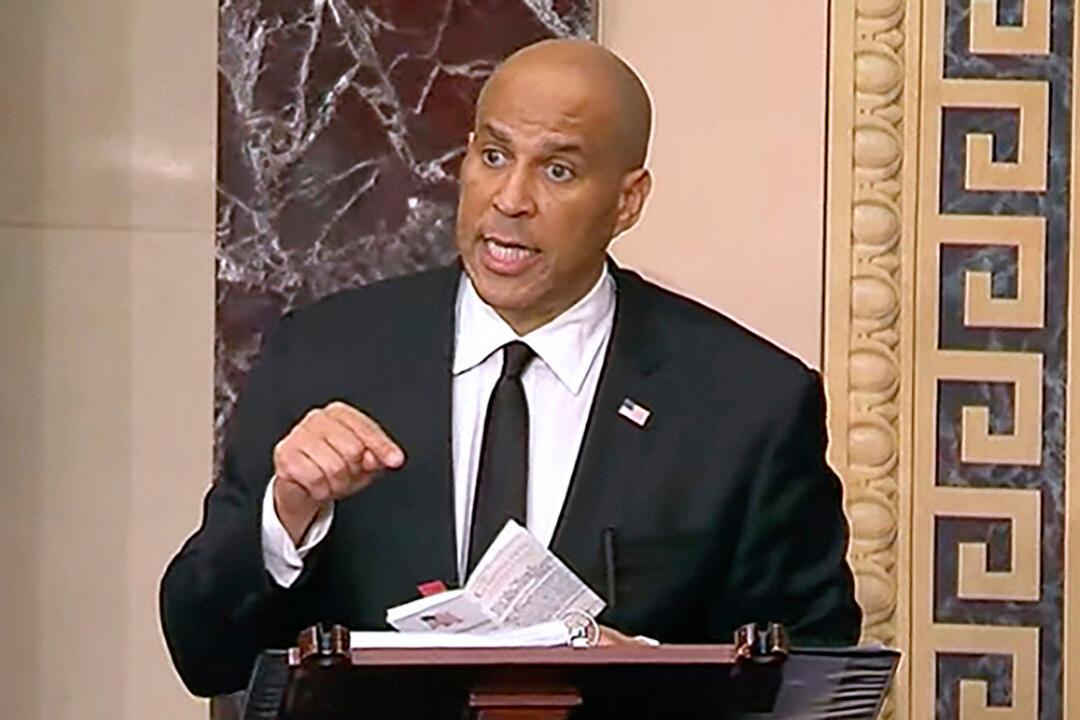Late in the evening on April 1, Sen. Cory Booker (D-N.J.) yielded the Senate floor after a marathon speaking session that had begun over 24 hours earlier, his speech shattering the record previously held by Sen. Strom Thurmond since 1957.
Rising at around 7:00 p.m. ET on March 31, Booker spoke through the night and into the next day in a speech targeting President Donald Trump’s aggressive use of executive authority in the opening days of his second term.





